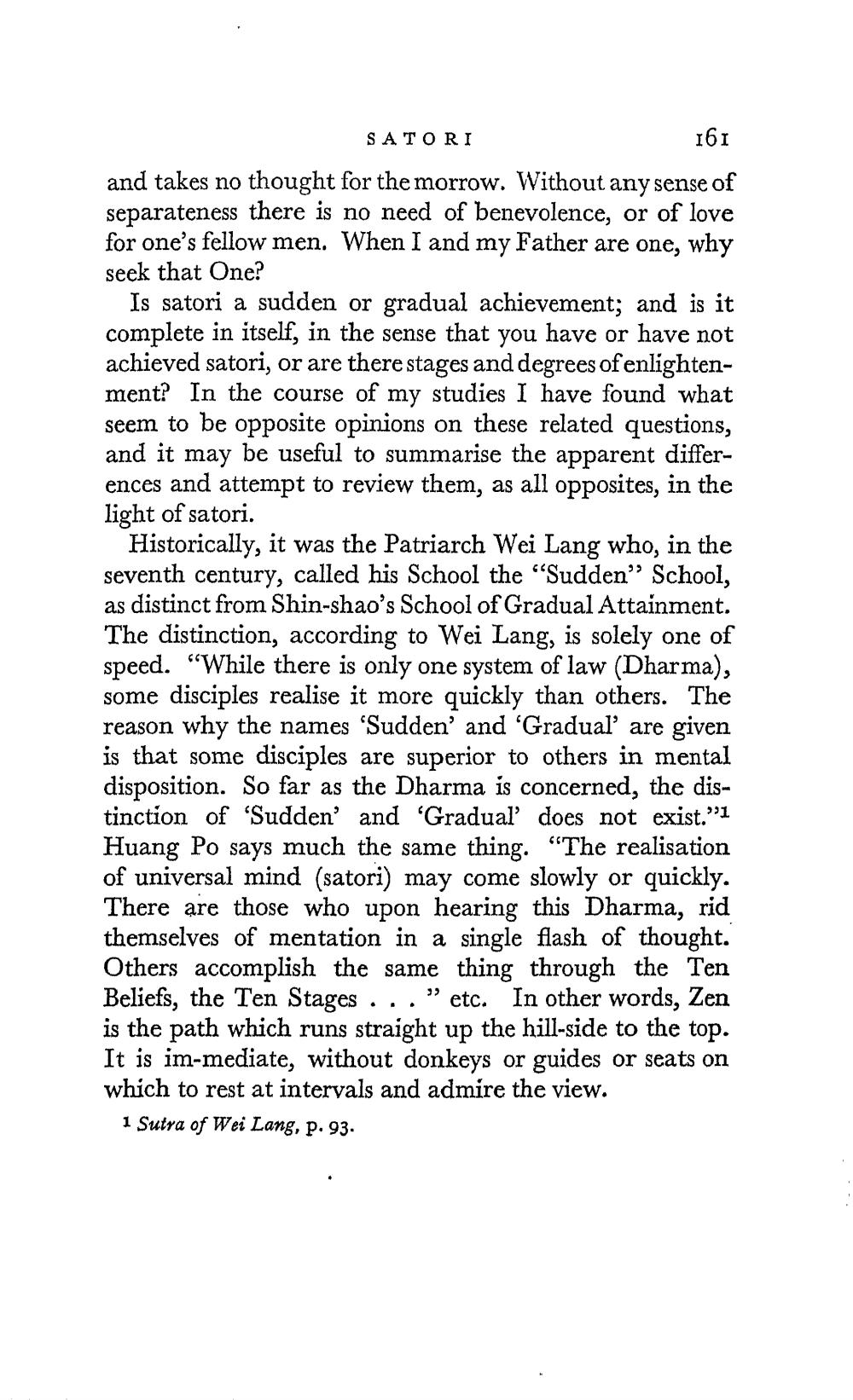________________
SATORI
161
and takes no thought for the morrow. Without any sense of separateness there is no need of benevolence, or of love for one's fellow men. When I and my Father are one, why seek that One?
Is satori a sudden or gradual achievement; and is it complete in itself, in the sense that you have or have not achieved satori, or are there stages and degrees of enlightenment? In the course of my studies I have found what seem to be opposite opinions on these related questions, and it may be useful to summarise the apparent differences and attempt to review them, as all opposites, in the light of satori.
Historically, it was the Patriarch Wei Lang who, in the seventh century, called his School the "Sudden" School, as distinct from Shin-shao's School of Gradual Attainment. The distinction, according to Wei Lang, is solely one of speed. “While there is only one system of law (Dharma), some disciples realise it more quickly than others. The reason why the names 'Sudden' and 'Gradual' are given is that some disciples are superior to others in mental disposition. So far as the Dharma is concerned, the distinction of 'Sudden' and 'Gradual' does not exist."'1 Huang Po says much the same thing. “The realisation of universal mind (satori) may come slowly or quickly. There are those who upon hearing this Dharma, rid themselves of mentation in a single flash of thought. Others accomplish the same thing through the Ten Beliefs, the Ten Stages . . ." etc. In other words, Zen is the path which runs straight up the hill-side to the top. It is im-mediate, without donkeys or guides or seats on which to rest at intervals and admire the view.
1 Sutra of Wei Lang, p. 93.




